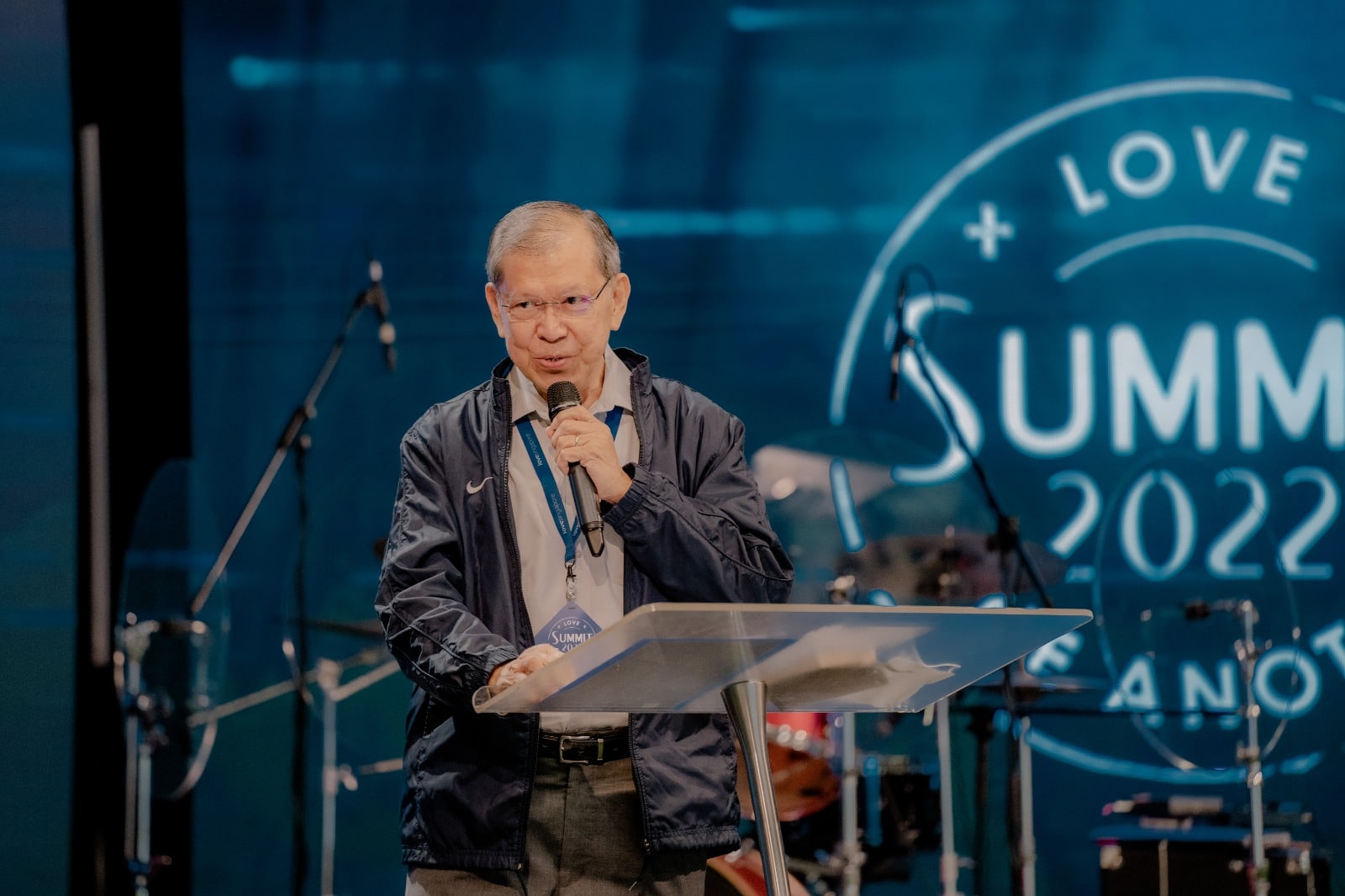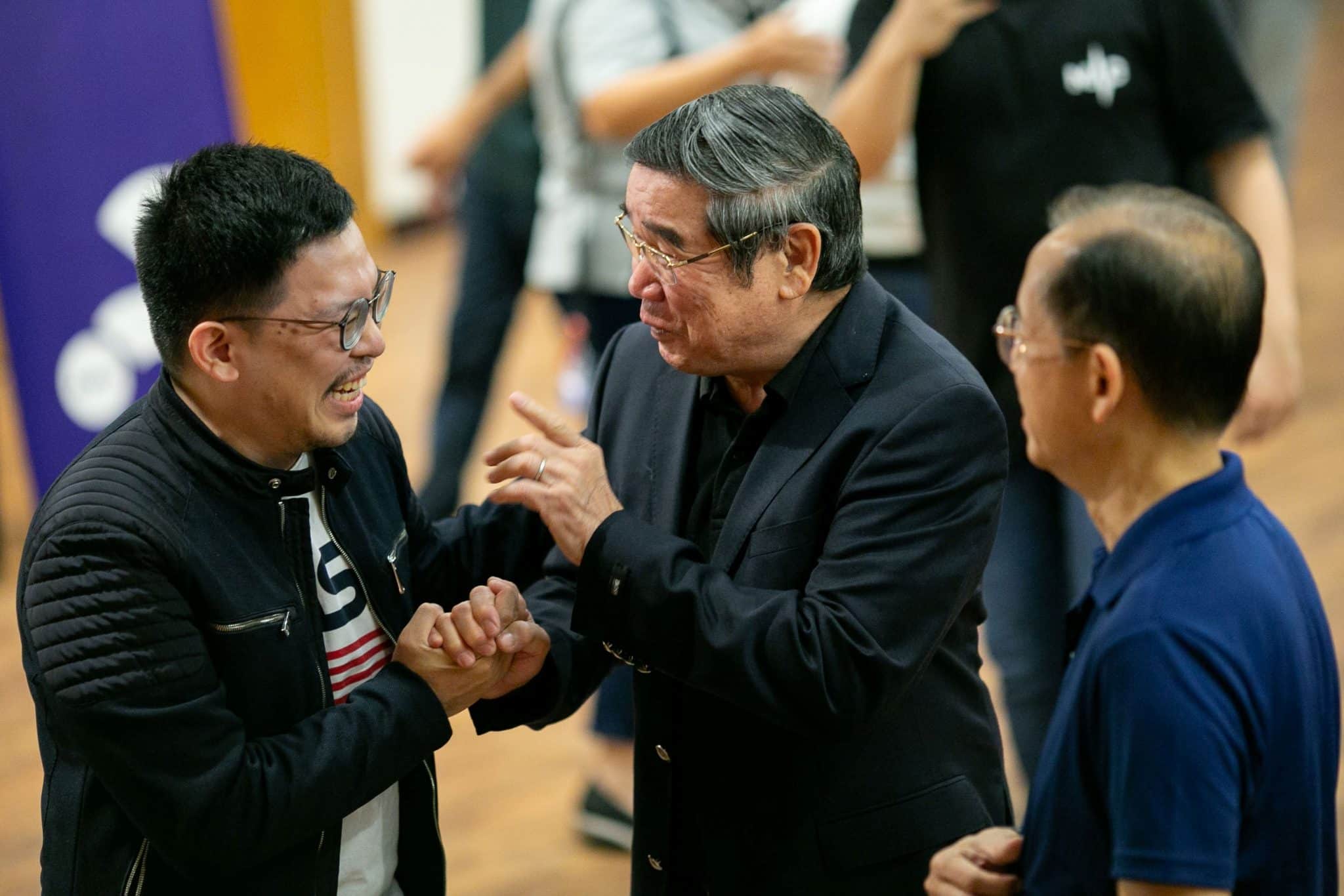9 ways to be a better mentor: Rev Dr David Wong shares from 40 years of experience
by Christine Leow // November 19, 2023, 9:18 am

Mentoring is merely one person taking responsibility for another, said mentoring pastor Rev Dr David Wong. Photo by Medienstürmer on Unsplash.
Rev Dr David Wong may be 74 but he is nowhere near retiring.
Four years ago, he stepped down as senior pastor of Zion Bishan Bible-Presbyterian Church and stepped into his role as a mentoring pastor. Now he mentors the leaders of both Zion Bishan Bible-Presbyterian Church, as well as Mount Hermon Bible-Presbyterian Church.
Mentoring leaders is something with which Rev David is intimately familiar. In his over 40 years of pastoral work, he spent 13 at Haggai Institute overseeing leadership training in Maui, Hawaii, for Christian leaders from over 100 nations.

Rev David speaking at Pastors’ Summit 2022. He is a strong advocate of mentoring within the church. Photo by Ang Wei Ming.
“Mentoring leaders has a cascading effect. If leaders are well-mentored, they go on to lead well.”
Asked how many mentees he has had over his four-decade ministry, Rev David pauses, unsure.
“So many I can’t count,” he admits.
One thing is certain, he is a firm believer in mentoring. To him, mentoring is someone “assuming responsibility of another” such that he becomes that person’s exemplar, confidante, consultant and cheerleader.
He shares with Salt&Light nine tips on being a mentor.
1. Start spontaneously
Many of those whom Rev David mentored approached him first. At Haggai Institute, scores would come for their training programme.
“If you have any issues, you can get in touch with me.”
“When they leave, they ask, ‘Can you be my mentor?’”
Though separated by distance (his mentees hail from as far as Brazil, UAE, India and Indonesia), Rev David makes himself readily available.
“Often, it has been long-distance mentoring. Through emails because in those days there was no WhatsApp or Zoom. Sometimes, it would be by phone calls.
“I would say, ‘Keep in touch. If you have any issues, you can get in touch with me. If I am in your country, you can contact me.’”
Those he mentors in Singapore make appointments to see him every month or, sometimes, quarterly.
2. Build relationships
Mentoring is about life impacting life. So it has to be forged on the firm foundation of relationships.
Rev David shared: “Mentoring takes place one-on-one or in small groups, preferably not exceeding five. The bigger the group, the harder it is to build relationships and trust.
“In order for mentees to share deeply and authentically, trust has to be there.”
3. Begin with small talk
Rev David is big on small talk. In his experience, he has found that making small talk about the everyday things in life puts people at ease because they are making conversation about things that they know.
From there, the conversation can be steered towards heart talk with “how” questions: “How are you keeping up? How have you been?”
To add value to small talk, the conversation can be capped off with: “How can I pray for you?”
4. Listen before asking questions
His mentoring sessions follow no set curriculum and has no formal lesson plans. Instead, the conversations are led by the mentees.
“The chief purpose of life is holiness, not happiness and a carefree life.”
Rev David shared that he was once asked to mentor a cohort of seminary graduates transitioning into pastoral ministry. He was told to make a list of subjects he would run through with them. He declined the invitation because “mentoring is different from teaching”.
“I don’t say very much. I listen to what the mentees are going through in their lives and address those issues. Listen to what is beneath the surface, then ask question and let them think.”
Rev David has found listening for unarticulated needs especially useful because “men don’t tell you what is on their minds and their heart, they talk about all the other things”.
At times, he will ask two strategic questions: “What is the one thing that brought you joy this past month? What is the one thing that caused you pain this past month?”
Then he listens.
Recounting his experience with one of his mentees who was married but did not want children, Rev David said: “I asked, ‘Why don’t you want to have children?’
“Then I listened for the reasons. Is it altruistic? Is it selfish? What we want our mentees to do is to help them think through what they are thinking and what they are saying. Sometimes they may not know what they are really saying.
“When the person said, ‘I don’t want to bring a child into a world with so much trouble’, my question was, ‘Is it trouble for you or for the child? Is that a good attitude to have?’
“The chief purpose of life is holiness, not happiness and a carefree life.”
5. Share a personal story
Often, Rev David shares wisdom by sharing a personal story.
“We either follow the footsteps of those ahead or avoid the places where they fell.”
“The mentor must open up first. A significant part of mentoring involves opening up for the mentee and the mentor.
“I look for an issue and then relate a story which helps to cast light on the issue.”
To help other mentors, Rev David recently compiled stories he had told over his years of mentoring and published them into a book.
Mentoring Stories has 60 stories that span his years as pastor, trainer and mentor. Each also comes with responses from fellow pastors and church leaders.
“We find value in stories. We either follow the footsteps of those ahead or avoid the places where they fell,” he wrote in the introduction of his book.
6. Speak into life situations
Most of mentoring revolves around talking through issues about relationships with family – spouse, children – and co-workers.
“No longer will the focus be about acquiring of knowledge but living out truths in everyday life.”
Drawing on the biblical example of Jesus and his 12 disciples, as well as Paul mentoring Timothy, Rev David says that, in both cases, “learning took place in the twin contexts of real-life situations and relationships built over time”.
He mused: “Could that be the best way of learning and growing as disciples of Jesus? If so, our churches will need to develop a ‘mentoring culture’ in which every person is either a mentor or a mentee, or both.
“For that to happen, we need a change in paradigms.
“No longer will our focus be on activities but on relationships. No longer will it be about acquiring of knowledge but living out truths in everyday life.”
7. Rely on the wisdom of God
Rev David wrote in his book Mentoring Stories of a season when he was stricken with panic attacks.
“When I most needed it, a pastor friend gave me Psalm 131.
“In many of these situations, the Word of God has something to say.”
“Written by King David who had his fair share of traumatic and post-traumatic experiences, one verse struck a chord within me.
“But I have calmed and quietened by soul, like a weaned child with his mother, like a weaned child is my soul within me.” (Psalm 131:2)
The Word of God did much to calm his soul. Now Rev David draws deep from the well of God’s wisdom when mentoring.
One mentee was going through an issue with a colleague. Rev David drew from biblical principles to guide him.
“My response to him was, ‘You have an issue. Have you spoken to this person one-on-one? This is a biblical principle. (Matthew 18:15-17) Talk to that person, not to someone else.
“These are some basic teachings from the Word of God. In many of these situations, the Word of God has something to say.”
8. Guide, don’t direct
Mentors must not be too quick to give answers until they “know what the real questions are”.
“Sometimes, mentees in raising questions are encouraged to find their own answers as they articulate their thoughts and struggles.
“That is the role of mentoring, to help someone make his or her own decision.”
“In the early years, I was too quick to give answers. Sometimes I feel that this is such a simple problem. Don’t have to waste time talking about it. Do A, not B.”
But Rev David has learnt through experience the importance of prudence in doling out advice. Once, he was asked by a church looking for a senior pastor to pick from two candidates.
“It was so simple for me. A was from their denomination and had a doctoral degree. B was not and only had a general degree.”
Rev David picked the first candidate. A year later, the church realised the fit was not right.
“I realised that there were more than two options. There could have been a third option – reject both.
“In my early years of ministry, I tended to give answers too quickly. Now I guide them to think through things.”
More recently, a man wanted to leave the corporate world to go into full-time ministry. He sought Rev David’s opinion.
“I spent an hour with him. After that, he said, ‘I know what to do.’
“In my conversation, I never told him what to do. But in the end, he knew. That is the role of mentoring, to help someone make his or her own decision.”
9. Mould character, not solve problems
“There was one person who, every time we met, talked about the same problem – his wife,” recalls Rev David.
“What I tell him is this, ‘Did you make a choice to marry your wife? Then take your wife as God’s instrument to prepare you for heaven, to make you a more patient person, teach you to show unconditional love.”
Rev David relates this to underscore the goal of mentoring: Character building.
“The problem may not be solved, but the person is solved.”
RELATED STORIES:
This season of disruption is a kairos moment for the Church to arise: Day of His Power 2020
We are an independent, non-profit organisation that relies on the generosity of our readers, such as yourself, to continue serving the kingdom. Every dollar donated goes directly back into our editorial coverage.
Would you consider partnering with us in our kingdom work by supporting us financially, either as a one-off donation, or a recurring pledge?
Support Salt&Light


